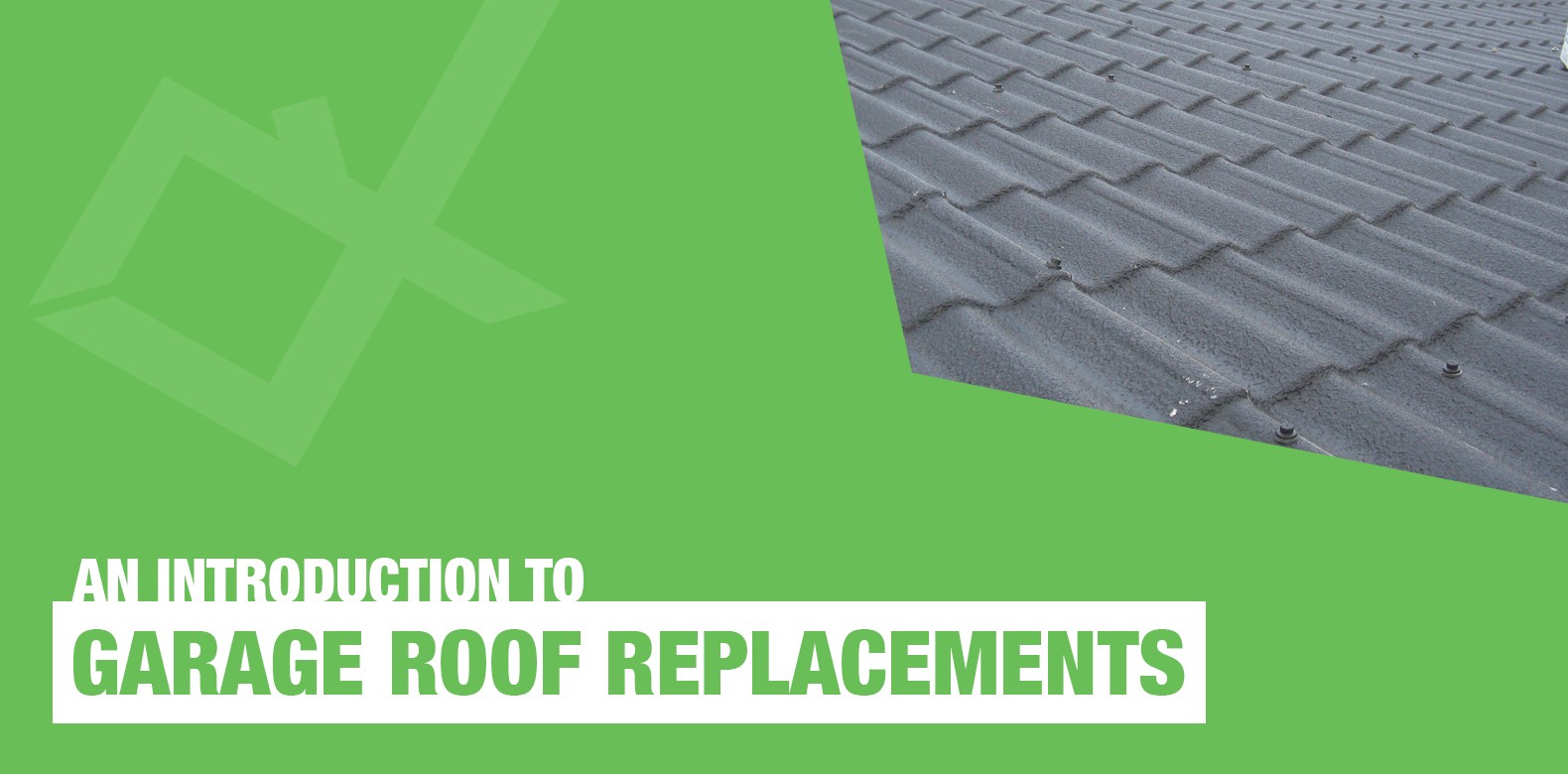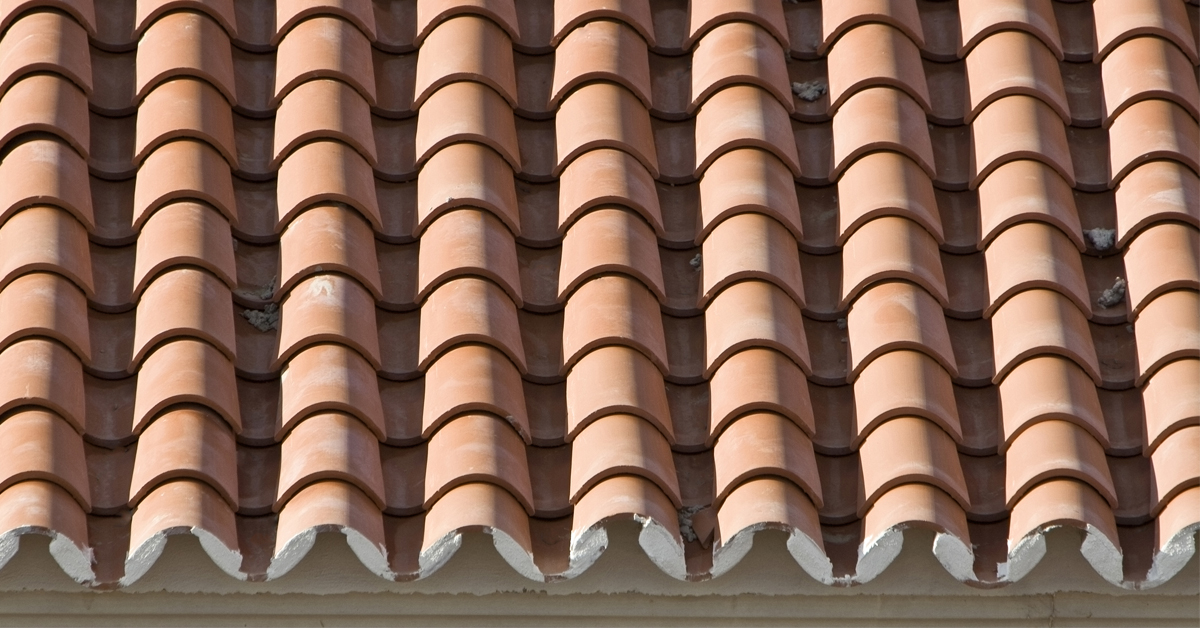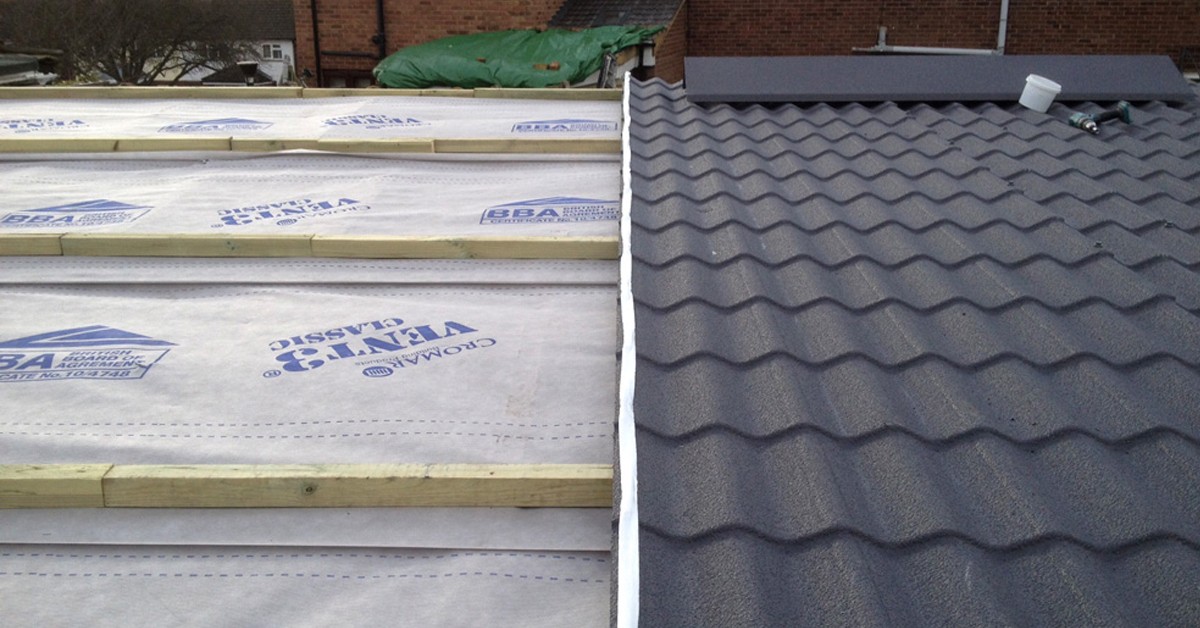Garage Roof Replacement

Garages remain one of the most cost-effective and sure-fire ways to add value to your home. This is as parking spaces are scarce in both leafy suburbs and bustling cities. An adjoining garage can therefore add between £11,000 and £22,000 to the value of your property. Allowing you to achieve a greater yield on your investment and making your home easier to sell.
If you’re one of these lucky homeowners, you’ll want to maximise the added value gained by your adjacent garage. Meaning you’ll need to ensure it is well maintained and provides the greatest level of functionality should you come to sell your beloved home in the near or far future.
One of the most important yet often overlooked factors is the roofing. This is as the kerb appeal, insulating capabilities, and overall durability of your garage roof could either encourage or discourage potential buyers. It could also have a major influence on the additional yield provided by your garage.
In this in-depth guide, we’ll be answering your questions about replacing a garage roof. Providing you with the knowledge you need to plan and tackle your very own garage roof replacement.
What is a Garage Roof Replacement?
As the name suggests, this involves replacing the entire roof of your garage. In most circumstances, this simply requires replacing the tiles, sheets or membrane used. Although, you may also need to replace the timber or steel framework in some cases.
The complexity of any garage roof replacement can vary. This is as some materials are easy to remove and replace, whilst others are far more involved. Because of this, the cost of labour can vary as well as the price of the materials.
Should You Replace Your Garage Roof?
Homeowners have a variety of reasons for replacing their garage roof. These reasons can often influence which materials they use and what other work they can expect to carry out. After all, different materials demand varying installation processes and structural support.
Below are a few typical reasons why homeowners replace their garage roof. We’ve outlined a few roofing materials suited for each challenge, whether that is durability or insulation. Although, the materials mentioned can help overcome several other issues.
Durability
The majority of garages are adorned by traditional roofing materials, such as concrete tiles or fibre cement sheets. Whilst these are ‘tested and proven’, they are vulnerable to cracks and chips throughout their life.
Unfortunately, in past decades there were few options besides concrete, clay, slate and fibre cement. However, brands such as Britmet and Tapco have since introduced a range of tiles and sheets manufactured from composite materials such as metal and plastic.
To ensure that your garage suits adjacent buildings, they have been designed to mimic traditional roof tiles. This includes a range of traditional profiles and rustic colours closely matching roof tiles manufactured by Marley, Redland and Sandtoft.
With an expected lifespan in excess of 40 years, these tiles offer a similar lifespan to many older garage roof options. But they won’t crack or chip, whether they experience severe hail or come under attack by vandals.
Another benefit of metal and plastic roofing is the speed at which it can be installed. This is due to each tile often being far larger and lighter than its traditional counterpart. Many also interlock with each other whilst still providing a gorgeous broken bond appearance.
Insulation
In England, you must achieve a U-value of 0.28 W/m2K when extending an existing property. In Wales, this is 0.21 W/m2K and in Scotland you’ll need to reach 0.19 W/m2K. Most of the thermal heat loss occurs through the roof, where the most stringent of requirements are placed.
Some garages feature low cost corrugated sheets, often produced from either bitumen or metal. Whilst these are incredibly cost-effective, they offer little insulation and often allow currents of cold air to enter. Making them unsuitable if the garage is adjoined to an existing building.
Traditional roofing materials such as concrete, clay, slate and fibre cement provide unrivalled thermal insulation. Although modern metal and plastic alternatives offer the same advantage when paired with appropriate insulation. Providing you a solution for every type of structure and roof pitch.
If you already use these materials but are finding it chilly in the winter, you may want to consider the build-up of your garage roof. After all, to achieve the best thermal insulation you must combine great roofing materials with excellent insulation. Such as the rolls and slabs produced by Knauf, Rockwool and Celotex.
Security
A surprising number of thieves take advantage of weaknesses in the roof of a garage. This is as cheap roof sheets or missing roof tiles provide an easy entry for an experienced burglar. Especially if the roof features a low pitch and is easily accessed from the ground.
Metal roof tiles provide superb protection from vandals, largely due to their tough steel base and unique interlocking design. As these are available in larger sheets, they also feature fewer seams for thieves to take advantage of. Providing added protection for your car, tools or family possessions.
Besides thieves, these tough materials protect your garage roof from other damage. Such as that caused by out of control footballs and severe storms, both unavoidable issues you’ll want to protect your roof against.
How Much Will a Garage Roof Replacement Cost?
Replacing a garage roof isn’t a cheap project, but the cost is largely determined by the material you use. This is as the prices can vary from £20 to £60 per square meter, and life expectancy can range from 40 to 100 years.
Below are a few popular garage roofing materials. Each have been hand-picked to suit different budgets and issues, whether that be aesthetics, durability, insulation or security. Simply take a look at each to uncover the best option for you.
Concrete
Whether you favour Marley, Redland or Sandtoft tiles, they are all similarly priced at between £20 and £40 per square meter. This is as price, colour, and finish have the greatest influence on the price of your concrete roof tiles.
Traditional roof tiles such as concrete are more complex to fit. They are also far heavier than modern alternatives. You can, therefore, expect to spend more on transport and installation when using these roof tiles.
Before buying these roof tiles, you’ll first want to ensure your structure is suitable. Afterall, they can weigh upwards of 70kg per square meter. Making them one of the heaviest garage roofing materials.
Unlike other tiles, concrete tiles are proven to stand the test of time. This is as they have been used on properties around the world for centuries. You can therefore comfortably expect them to last in excess of 50 years with minimal maintenance.
Clay

Clay roof tiles are famed for their gorgeous appearance and superb durability. However, they are similarly priced to concrete at between £20 and £40 per square meter. This price can vary from tile-to-tile, due to the exact profile and clay used.
These tiles are a little challenging to fit and weigh as much as 65kg per square meter. You should therefore expect a higher transport and installation cost. It is also important to ensure your structure can withstand their weight.
Since 10,000 B.C. these tiles have been used on a variety of buildings. You can, therefore, be assured of their strength and longevity, all whilst also enjoying the beautiful way in which they age.
Slate
Traditional and rustic are two words that come to mind when describing natural slate. This is as they have been a favourite amongst roofers and homeowners for centuries. Famed for their ability to age wholesomely and often outlast the property they are fitted too.
The price of natural slate can vary wildly, with quarries around the world producing slate of varying quality. However, for a high-quality Welsh or Spanish slate you can expect to spend between £30 and £40 per square meter.
Much like concrete and clay, slate tiles require considerable skill to fit. So, whilst they are a little lighter at approximately 35kg per square meter you can expect to spend a considerable amount on transport and installation.
The greatest benefit of slate is its durability, with some lasting in excess of 100 years. This is with minimal maintenance, although you may need to replace a few as they crack and chip. This durability makes natural slate one of the most low cost solutions in the long-term, but they do demand a higher initial investment.
Metal

Despite being a relatively new type of garage roofing material, metal tiles are growing in popularity. This is largely due to their easy installation, natural appearance and great durability.
The price of metal tiles can vary, largely dependent upon the thickness of steel and exact profile. You can, however, expect to spend between £15 and £45 per square meter on either 0.7mm or 0.9mm thick tiles.
Any additional cost is typically saved during installation, with them taking up to half the time to install than traditional alternatives. They also demand less structural support with a weight of up to 12kg per square meter.
Due to their unique design, these tiles can be used on a greater variety of roofs. This includes low pitched roofs with an angle as low as 10 °. You, therefore, needn’t worry about drastically changing the structure of your garage roof.
Once installed your metal roof tiles should last in excess of 40 years with virtually no maintenance being necessary. Providing a similar lifespan of traditional concrete and clay tiles.
Plastic
Much like metal, plastic roof tiles are becoming a popular alternative to natural slate. This is due to it being far lighter and crack resistant. All whilst providing the same kerb appeal for you and your envious neighbours.
The price of plastic tiles can vary, with prices between £20 and £60 per square meter. This is mostly swayed by the manufacturer and individual tile, with those designed to mimic natural slate typically being more costly.
Despite being the same size as real slates, these plastic alternatives are easier to fit. This is as they usually require only two fixings per tile and you won’t have any accidental cracks. Helping to reduce the overall cost of your project.
Weighing up to 12kg per square meter, these tiles are a third of the weight of natural slate. Making them suitable for garages with a pitch of 14.5° and above. You also needn’t worry about restricting your roof to withstand additional weight.
Whilst these plastic roof tiles will not outlast traditional slate, you can expect them to adorn your property for over 40 years. Throughout this time, you needn’t worry about replacing cracked or chipped slates either.
Have More Questions?
Whatever your question, our experienced and friendly team are here to help. Simply use the online chat or call 01295 565 565 to have your questions answered. They will be able to suggest the ideal solution for your garage roof replacement whilst keeping the cost of your project low.